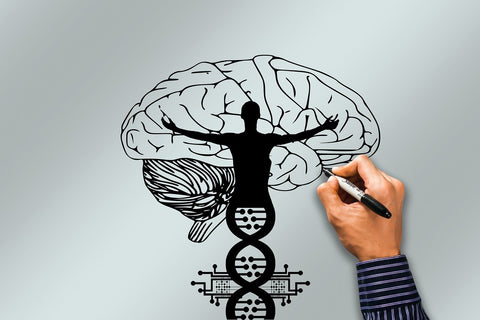
Epigenetics: Unlocking the Mysteries of Gene Expression
Epigenetics is a fascinating field of science that has opened up new doors in our understanding of genetics, health, and disease. Unlike traditional genetics, which focuses on the DNA sequence itself, epigenetics is all about how environmental factors, lifestyle choices, and other external influences can affect the way genes are expressed. In simpler terms, while your DNA remains fixed, epigenetic changes can turn certain genes on or off, impacting everything from your health to your behavior. In this blog, we’ll explore the basics of epigenetics, its implications, and why it’s important for the future of personalized medicine.
What Is Epigenetics?
At its core, epigenetics refers to modifications to DNA or associated proteins that regulate gene activity without altering the underlying DNA sequence. These changes can be influenced by various factors, such as diet, stress, exposure to toxins, and even experiences. The key is that these modifications can be passed on to future generations, meaning that our lifestyle choices today might not only affect us but also our children and grandchildren.
How Does Epigenetics Work?
Our genes are like an instruction manual for building and maintaining the body, but this manual isn’t fixed. Epigenetic mechanisms modify how genes are expressed by adding chemical tags to the DNA molecule or to the proteins around which DNA is wrapped. These chemical tags—such as methyl groups—can influence whether a gene is turned on (expressed) or off (silenced).
For example, a person exposed to a high-fat diet over time may experience epigenetic changes that affect genes related to metabolism, making them more likely to develop conditions like obesity or diabetes. Similarly, someone under constant stress may have epigenetic changes that affect genes related to mood and emotional regulation, increasing their risk for mental health issues.
Why Is Epigenetics Important?
-
Personalized Medicine: Epigenetics offers exciting potential in personalized healthcare. By understanding how your genes interact with your environment, doctors may be able to predict your risk for certain diseases or tailor treatments specifically to your genetic makeup. Epigenetic tests could help identify the most effective interventions, from diet to medication.
-
Preventing Disease: Epigenetic changes can be reversible, meaning that interventions like diet, exercise, or mindfulness practices might help “reset” your epigenetic profile, reducing the risk of chronic diseases or even reversing certain conditions. The potential to prevent disease through epigenetic modifications is one of the most promising aspects of this field.
-
Inheritance and Family Health: Epigenetic changes can be inherited, meaning your health may be shaped not just by your own choices but also by your ancestors. This could explain why some diseases or conditions seem to run in families even when they don't have a clear genetic link. Understanding these inherited epigenetic changes could lead to better screening and early intervention.
How Can We Measure Epigenetic Changes?
With advancements in technology, scientists are now able to measure epigenetic changes in great detail. Tools like epigenetic kits have made it easier for both researchers and the general public to explore how environmental factors impact gene expression. These kits often include techniques such as DNA methylation analysis, which provides insights into how genes may be regulated.
While these tools are still evolving, they offer a glimpse into how we can understand and potentially alter our genetic expression for better health outcomes.
Epigenetics and Future Research
The field of epigenetics is still in its early stages, but the possibilities are endless. Researchers are constantly discovering new ways in which epigenetic modifications can influence everything from aging to cancer to mental health. As more is learned, the hope is that epigenetic research will lead to breakthroughs in disease prevention, improved treatments, and even cures for conditions that have long been difficult to treat.
How Can You Get Involved?
If you’re passionate about understanding epigenetics or want to explore how it might impact your own health, there are many ways to get involved. Consider learning more through educational resources, taking part in research studies, or using epigenetic kits to get a closer look at how your genes are influenced by the world around you.
In the end, epigenetics is reshaping our understanding of biology. It teaches us that while our genes may set the stage, it’s the environment that helps determine how the story unfolds. By embracing the science of epigenetics, we are taking the first steps toward a more personalized, preventative, and holistic approach to health.
